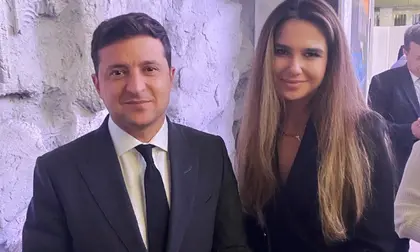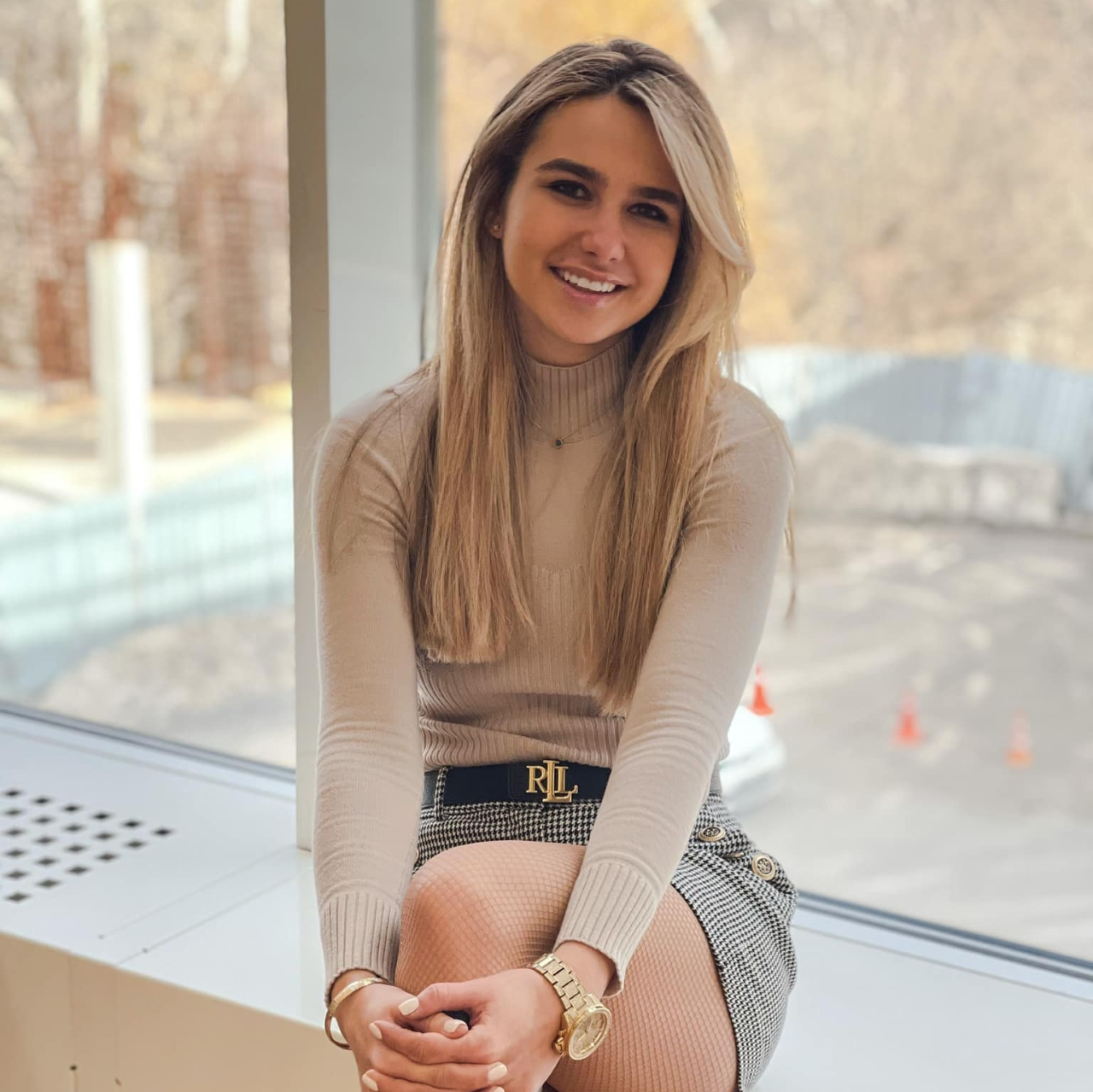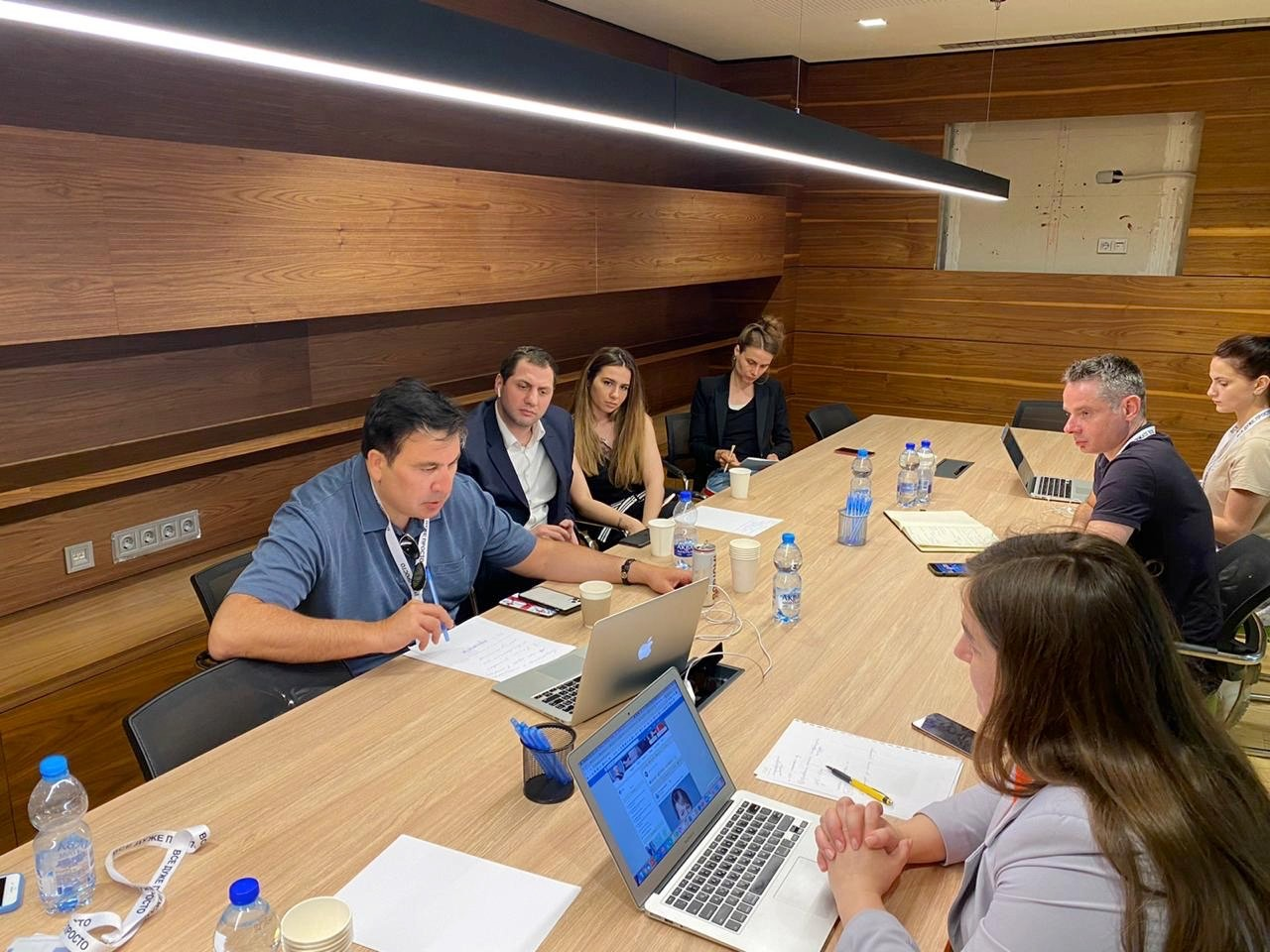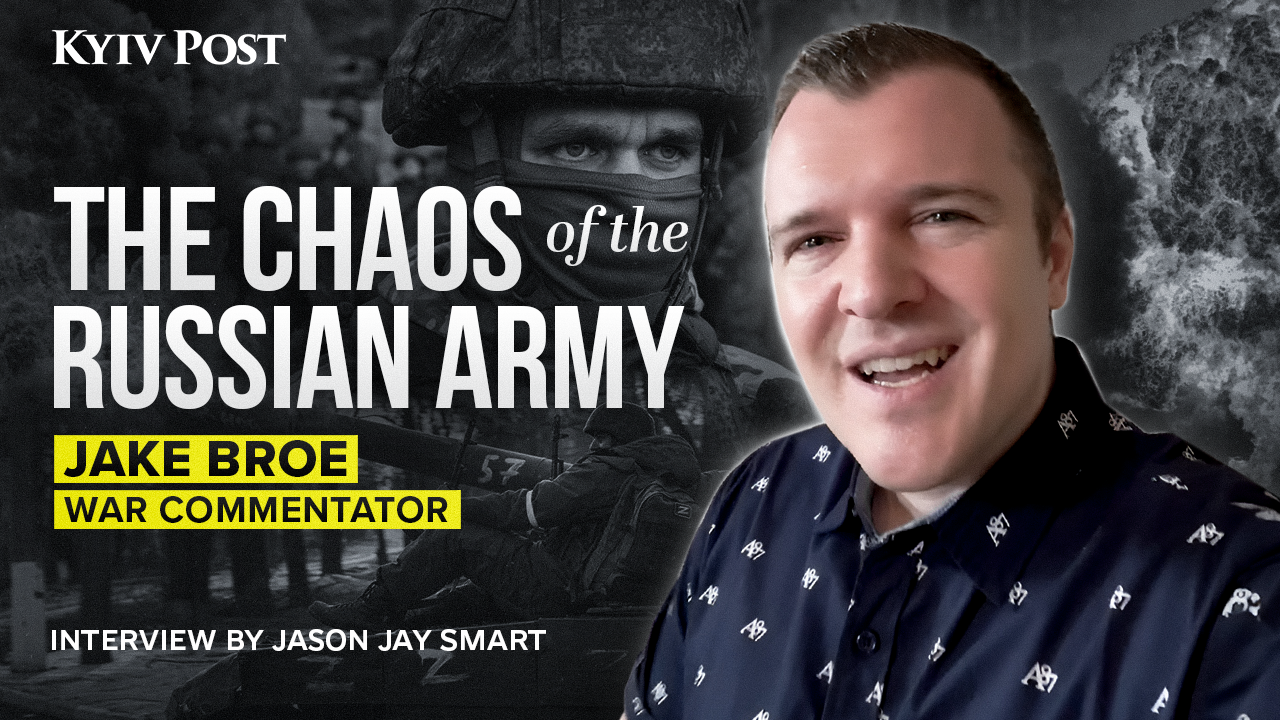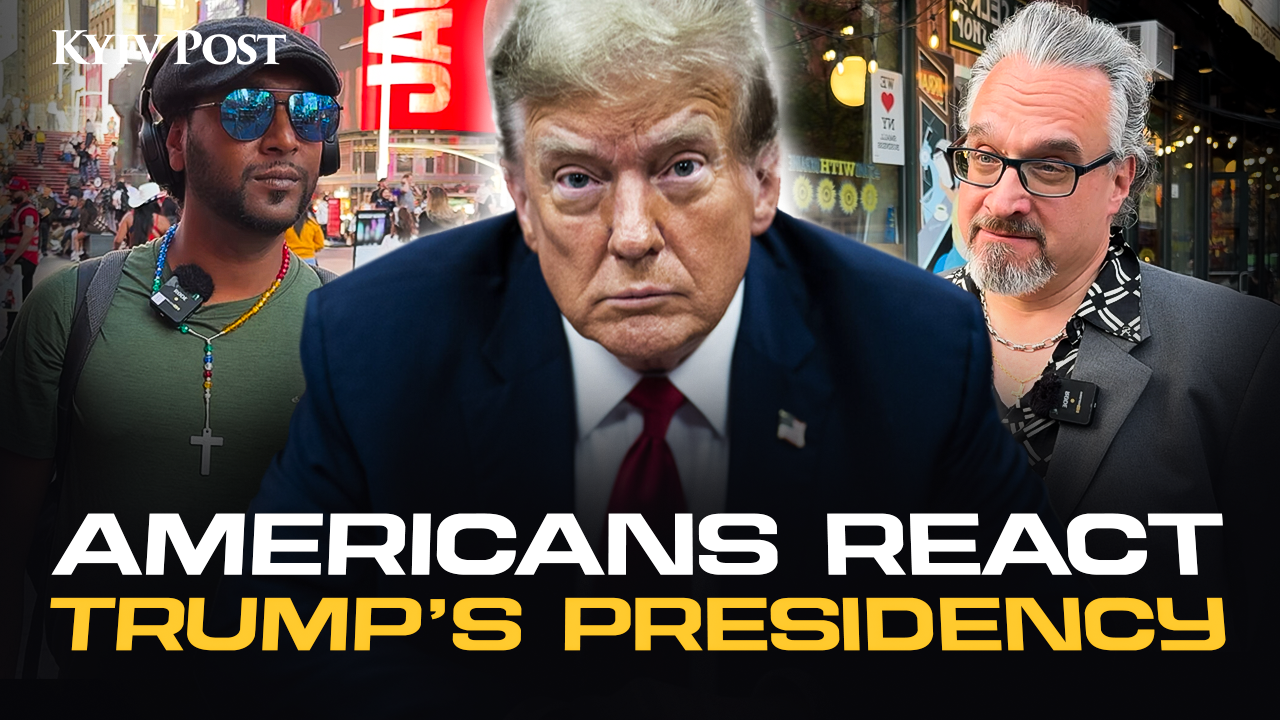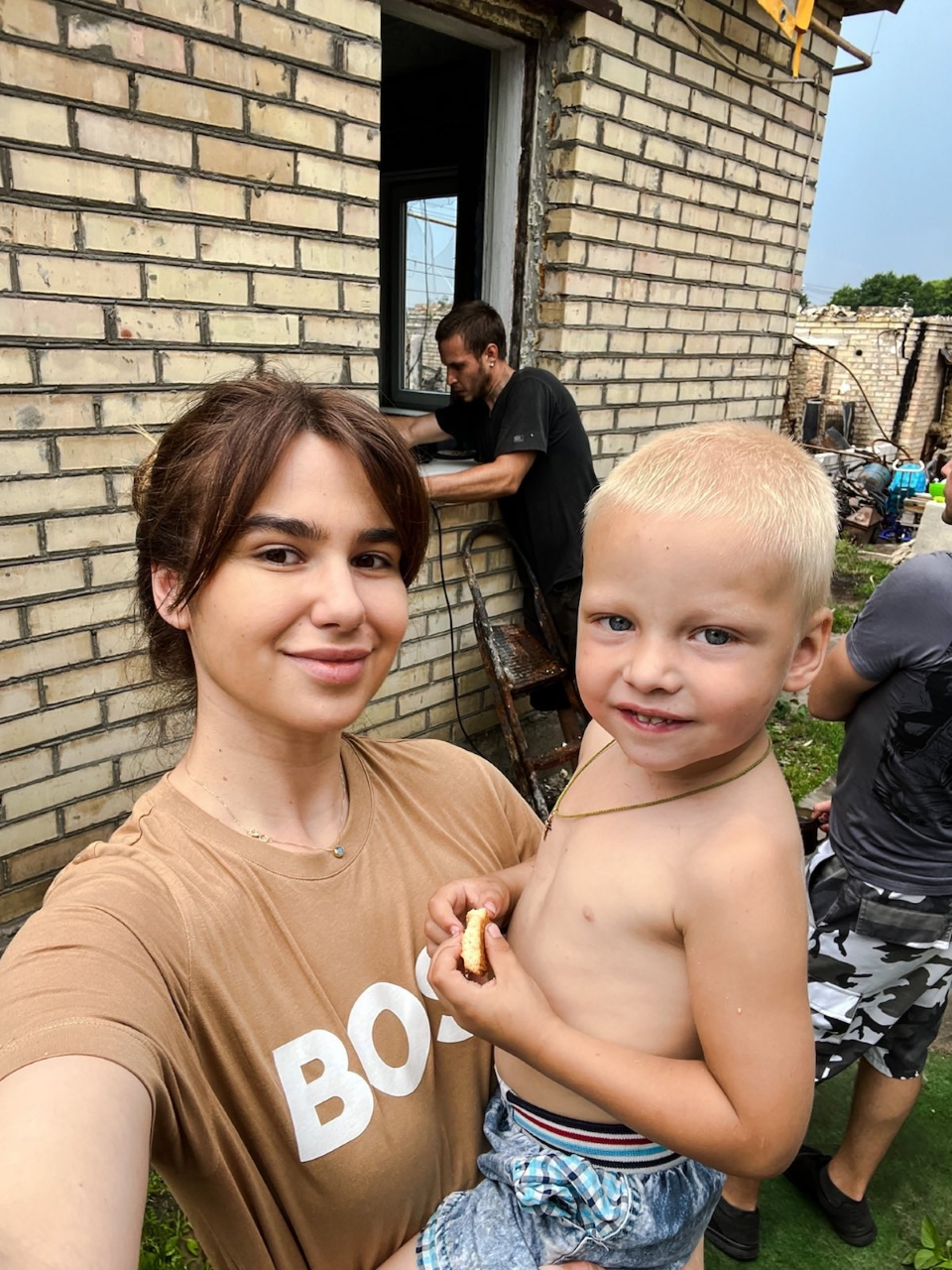Angelika Zayika worked in the Office of Simple Solutions, which is under the Office of President of Ukraine. The Office of Simple Solutions was headed by former Georgian president Mikheil Saakashvili. In this interview, she talks to the Kyiv Post about working with Zelensky, and about the ongoing invasion of Ukraine.
What did you do before the war?
I graduated in law from Taras Shevchenko National University of Kyiv. Before the war, I worked as a lawyer in the Office of Simple Solutions and Results, headed by Mikhail Saakashvili, under the Office of the President of Ukraine. Aside from that, I worked at American Political Services, a consulting firm that advised the government.
What laws did you work on in the Office of Simple Solutions?
I worked on diverse types of legislation, but my focus was mainly on deregulation and the simplification of business to improve the investment climate in the country. Specifically, I worked on bills related to the privatization of state and municipal property, the reform of urban development, the simplification of connecting to the electricity grid, and many other things.
Did you work directly with Mikheil Saakashvili?
Yes, he was the ideological inspiration for our team and was often present at working meetings. We had a very cohesive team. Rather than feeling like “an office job,” we really felt like we were all like-minded friends, working together for the development of Ukraine.

N. Korean Troops Massed in Russia to Enter Ukraine War ’Soon’: Pentagon Chief
How was it to work with Saakashvili?
It was everything! Emotional, creative, hard, but always interesting: The “simple solutions” were not always simple and easy.
How was it to work with Pres. Zelensky and his team?
I really liked Pres. Zelensky’s team. Many of the team members remain my close friends and I am grateful to them for supporting our initiatives, even when there were discussions and arguments about some of the proposals. This was actually a good thing – the vigorous conversations contributed to the improvement of our work.
What were the first days of the war like for you?
Total shock. I didn’t want to believe that a full-scale invasion had begun. Once it was clear, I implemented a plan to protect my loved ones and I sent my family to safety, but I stayed in Kyiv alone. After a few days, I went to see my family and I began my volunteer activities.
Are you doing volunteer activities now?
A few months ago I finally chose a focus for my volunteer work and created the charitable foundation Dakh. Dakh means roof in English.
And what does your charitable foundation, Dakh, do?
It helps Ukrainians who suffered during the active phase of war. A lot of families returned to their homes, though often the living conditions in the houses are no longer suitable for living. Many people literally do not have a roof over their heads. They are forced to stay in the more-or-less surviving houses of their neighbors, so you will easily find three or four families living in one house. But the survivor houses also have damage: broken windows, shot-through or broken doors, pierced roofs, etc. Fortunately, these kinds of things can be repaired.
How do people fix their destroyed houses?
Proper repairs need financial resources, which they lack due to lost jobs and income. The state and municipalities have no money in their budgets to compensate and repair homes. Due to the fact that the war is still going on in the country, the budget doesn’t get the revenue because infrastructure facilities, businesses in the villages and towns do not operate. Therefore, the only chance not to freeze with the onset of cold weather is with the help of people who care: those who can support our volunteer activities financially.
How does your organization work? Are all of the houses that you fixed damaged during the war?
Our charitable organization buys all the necessary materials and repairs the homes of the people affected. We try to involve local residents in carrying out repairs, thus giving them a job in a difficult financial situation.
We only repair houses that have been affected by Russian actions. Unfortunately, we cannot help everyone. Limited by fuel availability and cost, we are focused on repairing houses in the destroyed cities of the Kyiv region: Gorenka and Moshchun villages, located near better known Irpin, Bucha, and Gostomel.
In the first three months, we plan to help people in the village of Gorenka, which is roughly 7 houses in total. In six months we plan to cover Gostomel and Moshchun. In 12 months, we plan to establish systematic financial support to cover the entire Kyiv region with further expansion to other regions of Ukraine.
Repairing one house costs around $3000. Dakh is absolutely open about the use of funds.
We keep personal, direct contact with the locals, which allows us to determine those who need help most, aiming to prioritize families with little kids, large families, and single women.
What changes do you see in Ukrainian society since the war began?
At this point, it’s cohesion. I have never seen such cohesion and mutual assistance in our society.
How do you think that Ukraine will change after the war?
The country will have no choice but to develop. And it will be fast, it will be done correctly.
Why so?
Imagine a situation where, after the war is over, some girl wants to open her own store, and some “representatives of the security forces” come in and demand a bribe? Her husband, who fought in the war, will come and take care of the situation in a second. People will have no tolerance for lawlessness. Now every citizen is the owner of his country. And this feeling will drive everyone.
Remember President Zelensky’s slogan: Each of us is president? Now every person treats their country as their personal home and will do everything possible to live in a better country for the sake of everyone, with gratitude for all those who didn’t live to see it.
How do you think that the war will end?
The war will end with our victory: Ukraine is ours and will remain ours. Only we can determine how we should live, what power we should change, and where we should go.
You can also highlight the text and press Ctrl + Enter


